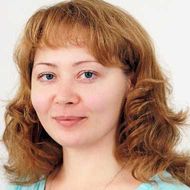‘Here, Everyone Can Be Heard and Receive Feedback’

The Ronald F. Inglehart Laboratory for Comparative Social Research (LCSR) has been holding academic seminars for 15 years, bringing together scholars from various countries and offering early-career researchers a platform to present their work. Anna Almakaeva, Head of the Laboratory, spoke to the HSE News Service about how exchanging ideas contributes to academic work, what topics are discussed at the seminars, and the laboratory’s plans for the upcoming academic season.

Anna Almakaeva
Our events bring together three different types of researchers.
First and foremost, our seminars work as a platform for young scholars, allowing their progress to be monitored. That is why most of the presentations are delivered by PhD students and early-career researchers, including those presenting their dissertation projects.
Secondly, our seminars involve more senior members of the laboratory. This sets a benchmark and provides a model to aspire to, as well as an opportunity to demonstrate what kinds of mistakes should be avoided.
Finally, the third part features both Russian and international colleagues. In recent years, our seminars have hosted scholars such as Michael Minkov (Varna University of Management, Bulgaria; University of Tartu, Estonia), Thomas Talhelm (University of Chicago, USA), and Christian Welzel (Leuphana University of Lüneburg, Germany).
Colleagues from HSE, particularly from the Institute of Demography and the Centre for Sociocultural Research, as well as from other universities, also present their research. Following the outbreak of the pandemic, we switched to an online format, which significantly expanded participation opportunities. Now, it is easy to join from anywhere in the world.
The seminars are held once every one or two weeks. The working language for seminars open to external participants is English. Announcements can be received via our mailing list or through the laboratory’s Telegram channel. New participants not yet subscribed to the mailing list can register via the form linked in the announcement of the upcoming seminar.
Topics
The topics discussed generally align with the laboratory’s research focus. These include, first and foremost, comparative studies of various aspects of subjective well-being, values, social capital, political attitudes, and political behaviour. By ‘comparative,’ we mean studies of different cultures, which are most often geographically linked to countries or regions.
One of our recent seminars focused on how personal and cultural values relate to attitudes towards video surveillance and the collection and storage of personal data. The research was based on data from two major international projects—the World Values Survey and the European Values Study—which together cover around 90 countries worldwide.
Aims and Objectives
The main benefit of academic discussion lies in the fact that everyone has the opportunity to be heard and to receive feedback. Researchers often develop a blind spot regarding their own work or may simply be unaware of new methods or publications—colleagues can always offer valuable insights. Each participant can suggest their own approaches to tackling particular substantive problems.
Moreover, the seminars help the younger generation integrate into academic life and master the norms and principles of ethical and productive scholarly communication. For them, the seminars serve as a form of training or rehearsal for larger-scale events. They learn how to present their research effectively and respond to questions with well-reasoned answers.
Another important aspect concerns the specific nature of academic work organisation. We do not operate with strict deadlines, and research projects can often stall due to teaching and administrative responsibilities. Presenting at a seminar in front of colleagues becomes a necessary external motivator to bring a project to completion.
Ultimately, this enables researchers to perform confidently at various international events, including our own conferences, which are held twice a year—in April in Moscow and in October–November in St Petersburg.
Finally, without regular meetings, it is impossible to maintain a network of contacts and a sustained interest in the research unit—including among undergraduate and master’s students. The LCSR closely collaborates with the international Master’s programme in Comparative Social Research, and the seminars provide a platform for students to engage with the latest developments in the field.
International Collaboration
The LCSR was originally established as an international laboratory, which participates actively in global scholarly networks, adopts cutting-edge approaches to analysing social processes, is engaged with the latest literature in the field, and is involved in international data collection projects.
As a result of the discussions held at the seminars, new connections are formed—or existing ones strengthened—with leading international experts in the field of comparative social research. These meetings facilitate the exchange of ideas, experience, and contacts, creating the basis for future cooperation in the form of joint academic articles and monographs.
Planned Seminars until the End of 2025
In early September 2025, a series of seminars is scheduled to take place, featuring researchers from the Moscow and St Petersburg campuses of HSE University as well as colleagues from international institutions—including Michael Minkov (Varna University of Management, Bulgaria; University of Tartu, Estonia), Peter Schmidt (Justus Liebig University Giessen, Germany), Thomas Talhelm (University of Chicago, USA), Hermann Dülmer (University of Cologne, Germany), Tatiana Tkacheva (HSE University), Vladimir Kostromin (HSE University), Dmitry Arkatov (HSE University), Aigul Klimova (HSE University), Boris Sokolov (HSE University), and others. Information on the seminar dates, times, and topics will be available on the LCSR website in early September 2025.

